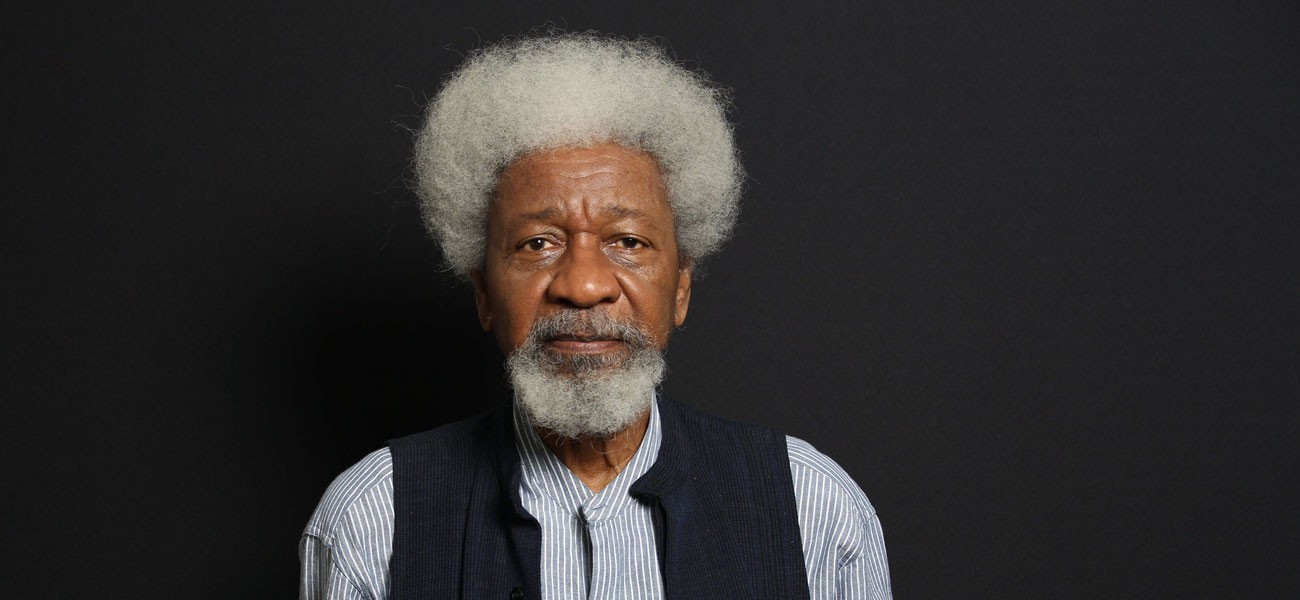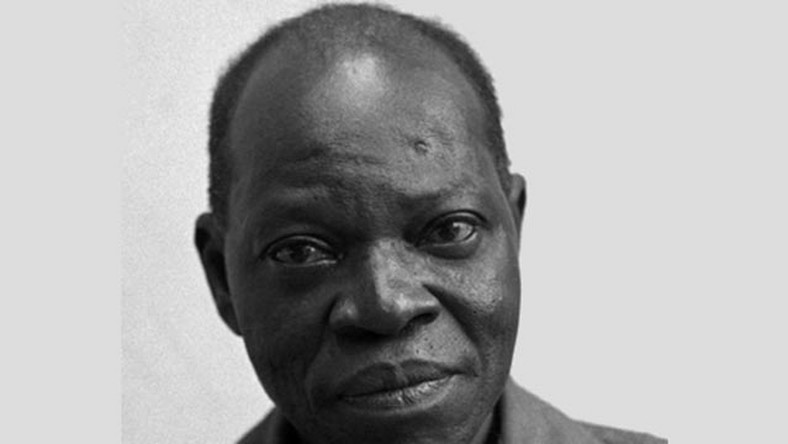In celebration of the 59th Nigerian Independence Day, I’ve put together a list of 6 Nigerian authors along with a short review of some of the books and essays I’ve read (plus one author whose plays I would like to read). Nigeria is easily home to some of the best authors out there. My uni runs a ‘Nigerian Prose Literature’ module which I was able to take part in, and it was the module that formally introduced me to these authors. I was suddenly introduced to a whole other side of Nigeria from people who were not family members. The following books aren’t just aimed at Nigerians, they’re aimed at anyone who loves reading and learning more about the Nigerian culture along the way.
Chinua Achebe

Many viewed him as “The Father of African Literature”. Achebe was a Nigerian novelist, poet, and professor raised in Ogidi, southeastern Nigeria. He began writing as a university student and released his first novel Things Fall Apart in 1958. His stories were mainly influenced by Igbo folk tales. Achebe sadly died in 2013, but he has left behind a treasure-trove legacy that will never be forgotten.
Upon release, Things Fall Apart received backlash due to it being written in English (the colonial language). Achebe states that “I feel that the English language will be able to carry the weight of my African experience. But it will have to be a new English, still in full communion with its ancestral home but altered to suit its new African surroundings.” Things Fall Apart is a critique of imperialism and colonisation. Deeply rooted in the Igbo culture (the third largest ethnic group in Nigeria), the novel follows the protagonist Okonkwo, a respected leader and warrior in the Umuofia tribe of the Igbo people. His life quickly derails as he stumbles over multiple hurdles along the way. Not only are these personal hurdles, but also the hurdles that come with being in a position of power.
Chimamanda Ngozi Adichie

Adichie is a brilliant writer, speaker, feminist and so much more. She is such a present voice today in our modern-day society and speaks powerful truths into the lives of many (especially black women). I’m quick to say that she is a role model of mine and gives me hope for the future of black women. She’s one of the reasons I do what I do. Representation is important. In fact, it’s so important that I wrote a separate blog post about it (check it out here). Her work ranges from novels to non-fiction, to short stories, and she’s even delivered a few TedTalks along the way. Adichie grew up in Nsukka and went on to attain many degrees during which she released her first novel Purple Hibiscus.
Americanah, 2013 is hands down my favourite novel of hers. So much so that I chose to analyse it for my dissertation. Americanah covers topics such as gender inequality, race, identity, loneliness, the politics of black hair, etc. The story follows a strong-willed Nigerian woman, Ifemelu, and her journey through life as she moves to America and then back to Nigeria. The reader goes on the journey with her as the novel highlights the shift in the way she views herself as well as the shifting perceptions others have of her. So many themes are covered in the novel, but Adichie ensures this is done in an eloquent way.
Buchi Emecheta

When I think of Emecheta, I imagine a kind and warm mother figure. Emecheta was born in Lagos, Nigeria and moved to Britain in 1960. She wrote novels, plays, an autobiography as well as children’s books. Her writings epitomised female independence. “Apart from telling stories, I don’t have a particular mission. I like to tell the world our part of the story while using the voices of women.” Much of her fiction documents her own experiences as a single parent and black mother. Her work is also deeply rooted in the contrasting senses of place and displacement. Emecheta sadly passed away in 2017.
The Joys of Motherhood, 1979 taught me a lot about the state of motherhood and marriage in a traditional Igbo society. The story explores Nigerian woman Nnu Ego and her life experiencing the roles of ‘mother’ and ‘wife’. She covers themes of colonialism, gender, and racial difference. The sombre undertones crept in the shadows throughout the whole novel. Her writing doesn’t reject Nigerian customs completely but opts to challenge the prejudices. While The Joys of Motherhood pinpoints the happiness which derives from fulfilling responsibilities as a woman, it more so brings to light the pain and anxiety which comes along with it.
Ben Okri

Okri is a novelist and poet who has also produced essays, and short stories. He was born in Minna, west-central Nigeria and moved to London when he was under 2 years old. Okri’s family later moved back to Nigeria and his exposure to the Nigerian Civil War (also known as the Biafran War) influenced his fiction. Upon leaving Nigeria for London, he experienced homelessness when his funding for his scholarship fell through. All of his work comments on universal themes of pain, loss, and love.
Incidents at the Shrine is the first collection of short stories by the author featuring stories such as Laughter Beneath the Bridge, Disparities, and Incidents at the Shrine. The Incidents at the Shrine short story follows a young boy’s experience of the Nigerian Civil War in Lagos, and the blend of the spirit world with a decaying Nigeria. Okri uses poetic, humorous and lyrical prose to create a startling reality of the Civil War and its effects on those sucked into it. I found the short story hard to read at times due to the strong emotions that lay present but finishing it made me glad because it opened my eyes to life during a war. Although the short story was fiction, I was able to grasp a sense of reality within it.
To myself, it’s like the Netflix Documentary When They See Us in the sense that I stopped watching it for a while because of the negative emotions I felt when watching it. But I was glad when I finally did finish it because I should be informing myself of what’s occurring around me today even if it’s negative and heart-breaking.
Wole Soyinka

Soyinka is an essayist, poet, and playwright born in Abeokuta. He was the first African to be awarded the Nobel Prize in Literature. In the 1960s, he founded two theatre groups “The 1960 Masks” and “The Orisun Theatre Company” in which he produced his own plays and took part as an actor. He has been a strong critic of Nigerian governments and has played an active role in Nigeria’s political history. His decades of political activism led to his 22-month imprisonment and exile.
I have not read any of his plays, essays or poems, but I was kindly gifted a book of his which features a collection of his plays which I cannot wait to read! I’m especially excited to read The Swamp Dwellers which is a play Soyinka published in 1958. The play explores themes of power, social injustice, family life, and the confrontation of old and new societies in Nigeria and beyond.
Amos Tutuola

Tutuola was a writer born in Wasinmi, a village just a few miles outside of Abeokuta. He only had 6 years of schooling making him a self-taught writer and it’s amazing what he’s achieved with this. Tutuola died in 1997 before I was born, but this goes to show that his work has continued to live on long after his death and is still relevant today.
The Palm-Wine Drinkard, 1952, is the first African novel to be published in English outside of Africa. The tale is written in Nigerian Pidgin English or Broken English. This was such an enjoyable read. Not saying that I wasn’t also impressed by the other novels and essays, but this was enjoyable in a different way. The mix of English and Nigerian Pidgin English exposed my mind to a new way of thinking. Tutuola incorporated Yoruba myths and legends into this one, and everything seemed to be an adventure where I was constantly looking out for what was to occur next. It was a brief but entirely captivating rich tale.
MARK 5:34

great post:)
https://tiateilli.com/
LikeLike
Thanks 🙂
LikeLike
Pingback: 21 Books By Women Of Colour You Can Read In 2021 | she stands firm.